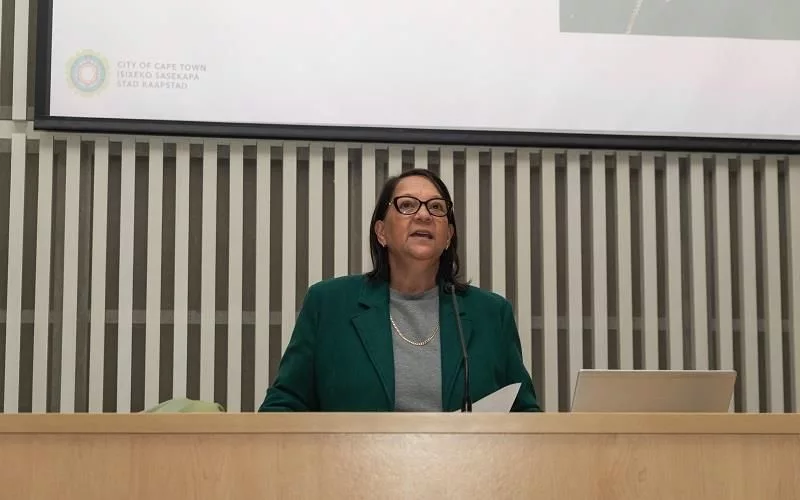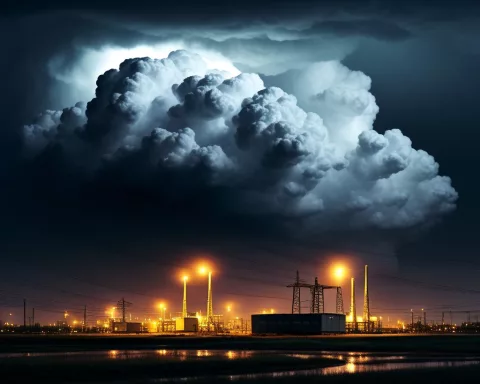Cape Town recently held the Energy Water Waste Forum, which brought together city authorities and industry experts to find solutions to energy challenges while balancing economic expansion. The city has set ambitious goals to become carbon-neutral and climate-resilient by 2050, with a focus on enhancing energy efficiency. The forum was a strategic collaboration and marks a significant step towards a more sustainable and economically prosperous future for Cape Town.
Cape Town is committed to a sustainable future and recently organized the Energy Water Waste Forum, a joint initiative between city authorities and key figures from various industries. The forum aimed to balance energy sustainability and economic expansion, with a focus on finding solutions to energy challenges. Cape Town has set ambitious goals to achieve a carbon-neutral and climate-resilient status by 2050, with a special focus on enhancing energy efficiency across businesses, households, and municipal services. The Energy Water Waste Forum was a significant step towards a more sustainable, resilient, and economically prosperous Cape Town.
A strategic collaboration
In the full swing of a busy Thursday in June, Cape Town demonstrated its dedication to a sustainable future by organizing the Energy Water Waste Forum. This gathering was a joint initiative between city authorities and key figures from various industries, with its core objective being the careful equilibrium between energy sustainability and economic expansion. The forum served as a platform for industry specialists and city officials to illuminate the route towards energy reliability and security, particularly in the context of a fast-changing energy environment.
The event featured prominent figure Councillor Beverley van Reenen, a member of the City’s Mayoral Committee for Energy, alongside leading industry experts. Their pooled expertise provided valuable insights on innovative practices and technologies currently shaping the future of energy. The Energy Water Waste Forum itself, therefore, stands as a strategic initiative by the city, in collaboration with Cape Town’s business sector.
Energy security and economic growth
Councillor van Reenen highlighted the significance of energy security in catalyzing economic growth, particularly in Cape Town and South Africa as a whole. She stated that the diversification of energy sources is a fundamental part of Cape Town’s approach towards the future of energy. The city, with its strong support for initiatives that enable employment, recognizes the huge potential within the energy sector. This potential is further magnified by the ongoing shift towards cleaner, renewable energy sources and the reduction of reliance on Eskom, South Africa’s public utility company. The city’s unique efforts to protect against load-shedding have resulted in a boost in employment levels, indicating the positive impact of this transition.
Insights from city representatives
The forum also served as a stage for representatives from the City’s Energy, Urban Waste Management, and Water and Sanitation directorates to share their valuable insights. Their collective expertise reinforced the belief that the city is moving in the right direction. Engaging with specialists in energy, water, and waste is key to finding solutions to challenges specific to these industries.
Cape Town’s sustainable future
The city has shown remarkable progress in its commitment to a sustainable future, particularly with its energy efficiency plans. Cape Town has set ambitious goals to achieve a carbon-neutral and climate-resilient status by 2050, a commitment reflected in its Climate Change Strategy and Climate Change Action Plan. This pledge was further highlighted with the recent publication of ‘Our Shared Energy Future: The 2050 Energy Strategy for the City.’ The document outlines three core commitments, with a special focus on the ‘Optimise Energy Use’ commitment, aiming to enhance energy efficiency across businesses, households, and municipal services.
Strong partnerships and the road ahead
The Energy Water Waste Forum was more than just a meeting of minds; it was also a testament to powerful partnerships. Various industry stakeholders collaborated closely with city administrators, contributing significantly to the development of the Energy Strategy and Resilience program. Councillor van Reenen expressed her gratitude to these partners for their dedication to Cape Town and its journey towards an energy-resilient future.
In summary, the Energy Water Waste Forum marked a significant step towards a more sustainable, resilient, and economically prosperous Cape Town. The city is not only ambitious but also pragmatic in its approach to energy security. Cape Town aims to leverage the power of collaboration to navigate the complex landscape of energy, waste, and water management, recognizing the pivotal role of energy security in shaping a prosperous future for its residents.
What is the Energy Water Waste Forum in Cape Town?
The Energy Water Waste Forum is a joint initiative between city authorities and key figures from various industries in Cape Town. Its core objective is to find solutions to energy challenges while balancing economic expansion, with a focus on energy sustainability.
What are Cape Town’s goals for a sustainable future?
Cape Town has set ambitious goals to achieve a carbon-neutral and climate-resilient status by 2050, with a special focus on enhancing energy efficiency across businesses, households, and municipal services. The city has also published ‘Our Shared Energy Future: The 2050 Energy Strategy for the City’ outlining three core commitments towards achieving these goals.
How does energy security impact economic growth in Cape Town?
Councillor Beverley van Reenen highlighted the significance of energy security in catalyzing economic growth in Cape Town and South Africa. The city recognizes the huge potential within the energy sector, particularly with the ongoing shift towards cleaner, renewable energy sources and the reduction of reliance on Eskom.
What role do partnerships play in Cape Town’s energy strategy?
The Energy Water Waste Forum was a strategic collaboration between various industry stakeholders and city administrators. The city recognizes the pivotal role of energy security in shaping a prosperous future for its residents and aims to leverage the power of collaboration to navigate the complex landscape of energy, waste, and water management.
What insights were shared by city representatives at the forum?
Representatives from the City’s Energy, Urban Waste Management, and Water and Sanitation directorates shared their valuable insights at the forum. Their collective expertise reinforced the belief that the city is moving in the right direction towards a sustainable future.
What documents reflect Cape Town’s commitment to a sustainable future?
Cape Town’s commitment to a sustainable future is reflected in its Climate Change Strategy and Climate Change Action Plan, as well as the recent publication of ‘Our Shared Energy Future: The 2050 Energy Strategy for the City.’ These documents outline core commitments towards achieving a carbon-neutral and climate-resilient status by 2050, with a special focus on enhancing energy efficiency.












